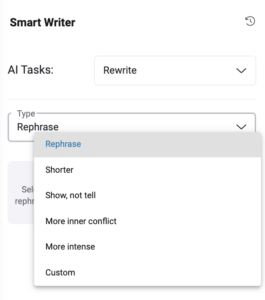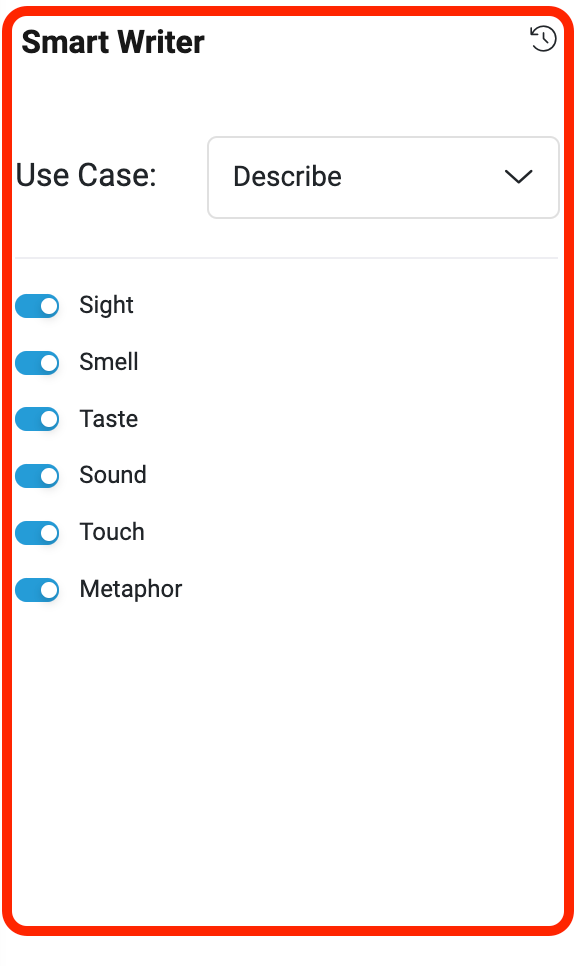How to write a dedication page in a book is a question that aspiring writers ask. If you’re here with the same question in mind, then keep reading.
Writing a book is sometimes overwhelming. And that’s why in most cases, you need inspiration to keep going. As a result, you will have to write a dedication once you complete writing your book.
It’s always good to thank all those or anything that helped you complete a book writing or self-publishing project, and you do so in the ‘book dedication’ section. This article guides you through the steps to write a perfect book dedication page in a book.
- What is Dedication in a Book?
- How to Write a Dedication in a Book?
- Factors to Research Before You Write a Dedication in a Book
- Final Remarks
- FAQs
What is Dedication in a Book?
If you express gratitude to anyone who motivated you during your book writing project, is exactly a book’s dedication.
Although the book dedication section is the last section to write, it fits in the first book pages, right after the book’s title page.
A book dedication doesn’t have to be long. Some authors write a few sentences, while others write one page. But that doesn’t make much difference. The most important thing is to pass gratitude to helpers and motivators who lead you to write and complete the book.
How to Write a Dedication in a Book?
Now that you’re aware of the definition, let’s go through the steps on how to write a book dedication:
1. Relax and Think
Before taking any step towards writing a book dedication, relax. Don’t take anything with haste. And as a result, you will think straight about what exactly has helped you in to write your book dedication.
Remember that once you publish your book, you will have exposed your thoughts to a considerable number of readers. Therefore, your own dedication to the text should be more precise and direct to the point. This is why you should first relax and think since you are also influencing young readers along with the book’s dedication.
2. Write Down a List
After relaxing, it’s time to write down a list of things or people who have been of good help during your book-writing process. Once you write the list, you can also write about how anyone has helped you in the project.
The list will help you figure out the inspiration you will prioritize in your book dedication page. Of course, you don’t have to write everything in your commitment since it has to be short. Therefore, choose the inspirations that directly impacted your book’s creation.
3. Keep it Short
While it’s essential to express your gratitude or sentiments, avoid making the dedication overly long. A concise and well-crafted dedication is more likely to resonate with readers.
Do not write about everyone or everything that contributed to the book’s success, because it will get quite lengthy. You will only find a high-priority source of inspiration if you don’t want to get stranded. And as a result, that will save you from unnecessary pressure and anxiety.
Strive for brevity in your dedication, ensuring that your message remains impactful without unnecessary beautification. Aim for clarity and simplicity, allowing readers to connect with the essence of your message without getting lost in unnecessary details.
When you understand your emotions to their core, you create a dedication that is both memorable and easily absorbed.
If you are done with the writing and it is still lengthy, use Squibler’s AI tool to rewrite or summarize it for you. The Smart Writer will provide you with multiple results, so you can choose the one that fits perfectly to your needs.

4. Mention the Reader of the Book
You write a book to get a group of people to read and understand it. Therefore, ensure that you mention the ideal reader in your book, and they will feel honored.
Sometimes, authors dedicate the book to their readers. For instance, you can also say that you dedicate the book to whoever reads it, which will be an excellent way to pass it to the reader. As a result, the reader will also feel that they should go ahead and read the book since they are a part of it.
5. Express True Feelings and Emotions
When writing a dedication in a book, ensure that your words talk directly to the person you are dedicating the book to. Remember, it’s time to express your feelings towards that individual person, task, or item.
Embrace the authenticity of your emotions and convey them with your dedication. Whether your sentiments are rooted in love, appreciation, or cherished memories, let your true feelings shine through. Allow your words to evoke genuine emotions, creating a connection with readers that transcends the page and resonates on a human level.
Use the chance wisely. And that will help you to achieve your goal towards the person you are dedicating your book to.
If you’re not good at expressing through words, use Squibler to do it for you. You can make a draft of your primary idea of dedication, and then ask Squibler to exchange it based on emotions for you. Squibler is capable of writing based on all five senses and even with a poetic metaphor.

6. Identify Your Audience
Begin by contemplating the diverse individuals or groups who will engage with your book. Whether it be your close-knit family member, steadfast friends, supportive colleagues, or someone else entirely, recognizing your audience is pivotal. This acknowledgment enables you to customize the dedication, ensuring that it strikes a chord with those who hold significance in your life.
By aligning the dedication with the intended readership, you foster a profound emotional connection between the content and the hearts of your audience.
7. Reflect on the Purpose
You must understand the motivation that is propelling you to dedicate your literary creation. Ask yourself questions like: Is it a profound sense of gratitude that compels you, a sincere recognition of unwavering support, or a desire to pay homage to someone extraordinary?
By introspectively considering the purpose behind the dedication, you infuse it with authenticity and depth.
This introspection transforms the dedication from a mere formality to a poignant expression, creating a lasting bond between your work and the individual or a group of people being honored.
8. Choose the Right Tone
Select an appropriate emotional tone that aligns with the essence of your book. Whether your dedication leans towards a solemn and formal appreciation or exudes a more light-hearted and playful demeanor, the chosen tone sets the stage for the reader’s emotional experience.
This conscious decision establishes an emotional resonance that harmonizes with the mood and style of your book, priming readers for the journey that lies ahead.
If you’re just starting and not sure about the tone, ask Squibler. Use the AI tool and questions about the tone with your primary book idea, your dedicatee, or your reader. It will provide an idea that resonates with your story plot, and your emotions.
9. Personalize Your Message
Elevate your dedication by infusing it with personal anecdotes, shared experiences, or memories that bind you with the dedicatee.
By delving into the tapestry of your relationship and incorporating these intimate details, you craft a dedication that is not only uniquely yours but also forges a powerful and lasting connection.
The personalized touch transforms the dedication into a shared narrative, enhancing its significance for both you and the reader.
Ask Squibler’s Smart Writer to rewrite and expand your idea of dedication in a personalized way to help you have a final result.
10. Consider Quotes or References
Elevate the literary resonance of your dedication by contemplating the inclusion of a carefully chosen quote, a line from a cherished poem, or a relevant reference. Such additions, when thoughtfully integrated, serve as poignant embellishments that amplify the emotional cadence of your message.
By drawing on the wisdom or beauty encapsulated in external expressions, you enrich the dedication with layers of meaning, fostering a deeper connection between your words and the reader.
Use Squibler to find relevant Quotes and References, and it will provide you with customized results based on your storyline.
11. Review and Revise
Prioritize the critical step of revisiting your dedication, meticulously examining the language used, and eliminating any grammatical or typographical errors. Consider seeking the input of a trusted confidant, whose fresh perspective can offer valuable insights.
This process of review and revision is not just about refining the technical aspects but also about fine-tuning the emotional resonance, ensuring that your dedication is a polished and sincere expression of gratitude or admiration.
12. Choose a Placement
Deliberate on the optimal placement of your dedication within the book’s structure. Common locations include the opening pages, the acknowledgments section, or sometimes the conclusion. Align the placement with the natural flow of your narrative, selecting a spot that enhances the overall reading experience.
By strategically situating the dedication, you invite readers into an immersive journey, beginning with a personal note and meaningful touch that sets the tone for the entire book.
13. Read a few Book Dedication Examples
When you’re figuring out how to write a dedication page in your book, it’s helpful to look at examples from other books. This can give you a sense of the different ways authors express gratitude or convey special messages.
Take a moment to read dedications from various genres to see how writers connect with their readers. Notice the tone and language used in these examples. Pay attention to the length and style of the dedications.
By reviewing these examples, you’ll get a better idea of how you want to craft your own dedication and make it personal and meaningful for your readers.
Once you follow all these steps, you are all set on who you want to dedicate the book to and how to write book dedications.
Factors to Research Before You Write a Dedication in a Book
Before you write a book dedication, here are the questions you should ask yourself:
1. Do you have to include a dedication in your book?
Some authors do not even include a dedication in their writings. It’s not that they have nothing to write in a book dedication, but they may get overwhelmed on who to put in there. Therefore, they choose to leave it instead of stressing themselves out.
2. Do you have a list in your mind?
This question is crucial to ask yourself whenever you want to write a dedication in a book. We recommend that you only include whoever helped you during your book project.
By doing so, you will reduce the pressure of putting a long list in your dedication. Therefore, focus on the things that were your motivation while on your writing project.
3. What’s the main reason for writing a book dedication?
Maybe you could have something or someone you want to thank the most, and the only way to do it is through a book dedication. It doesn’t have to be an individual you write in your book dedication. You can also choose something that motivates you, like reading other books.
4. Did any person ask you to include them in your book dedication?
Of course, some people could even pay you to include them in your book or dedication pages. Therefore, if that’s the case, you can feature them in your commitment in the book.
Final Remarks
Remember that once you know how to write a dedication in a book, you can make everyone see and feel how you value the person.
In addition, ensure that whoever you dedicate the book to has the chance to see and read the book. And that will be the best show of gratitude ever.
FAQs
Here are some real examples of questions that authors ask when writing a dedication in a book:
Who/What Can You Include in a Dedication in a Book?
Here is what you can include in a dedication in a book:
- It can be your parents or other close family members who could have chipped in to support your book-writing project.
- Body exercise. Let’s say you like to do a morning exercise routine before starting your day. And that could be your source of energy while you embark on your writing.
- A particular drink could be a source of energy or motivation during your writing project.
- You can also dedicate your book to your readers. Then, the reader will feel good when they find that the book is entirely for them.
- You can also commit your book to inspirations that make you feel good.
How do I decide who to dedicate my book to?
Consider those who have played a significant role in your life or the creation of your story or book. Reflect on individuals or groups who have inspired, supported, or shared meaningful experiences with you, as they are likely fitting candidates for your dedication.
Is it appropriate to use humor in a book dedication?
Absolutely! If humor aligns with your book’s tone, feel free to inject it into your dedication. Just ensure it’s respectful and suitable for your target audience. Humor can add a personal touch, making your dedication memorable and engaging.
Should I include a quote in my dedication, and how do I choose one?
Including a quote is a great idea. Choose one that resonates with your feelings or the theme of your book. It could be from literature, a favorite author, or a shared experience. Make sure it enhances the sentiment you want to convey.
Where should I place the dedication in my book?
The placement is flexible, but common locations include the beginning, acknowledgments section, or at the end. Consider the flow of your book; placing it where readers can discover it early sets a positive tone while placing it at the end can create a lasting impression.



![How to Write a Book [In 12 Steps]](/learn/wp-content/uploads/2021/12/How-to-Write-a-Book-in-131.jpg)










